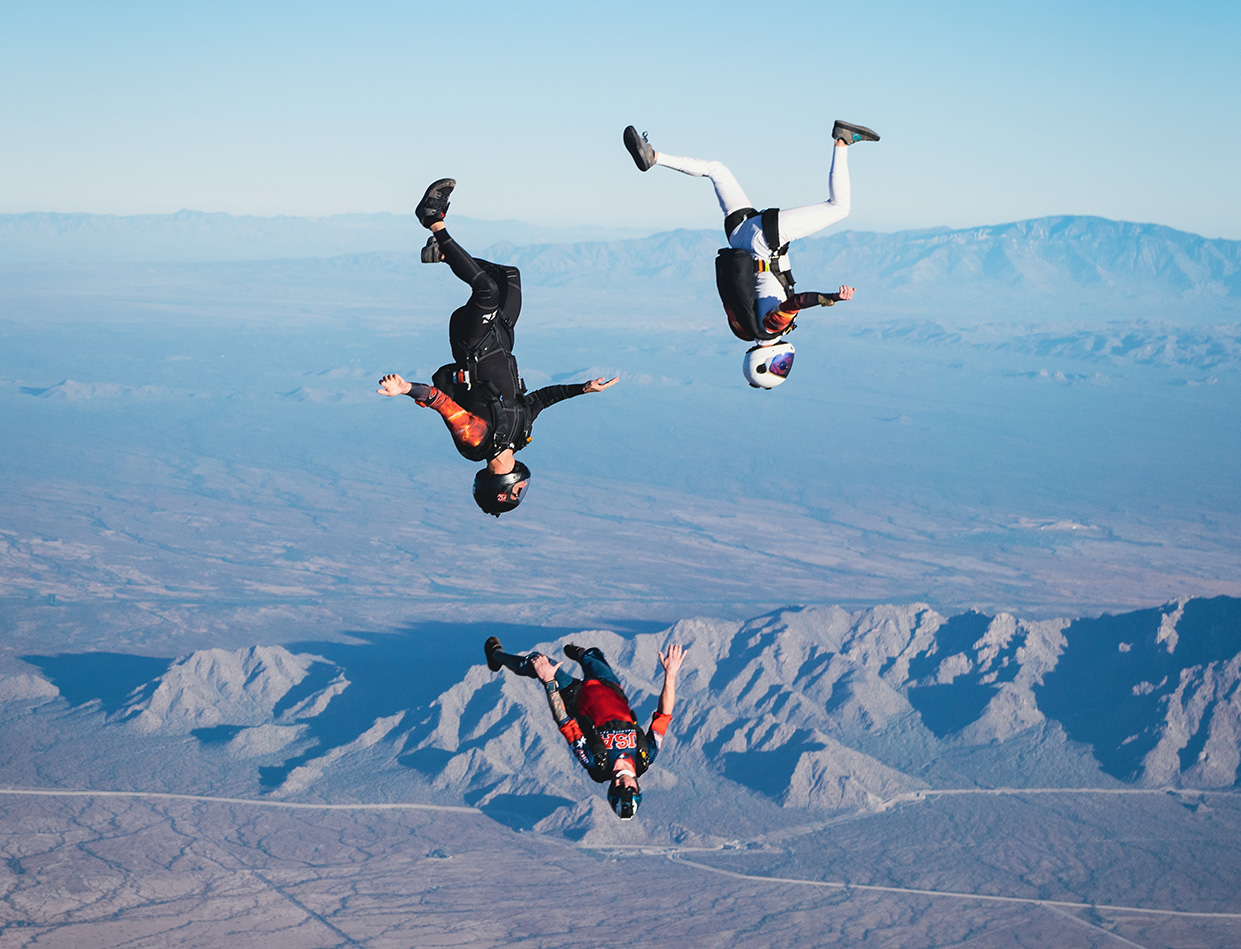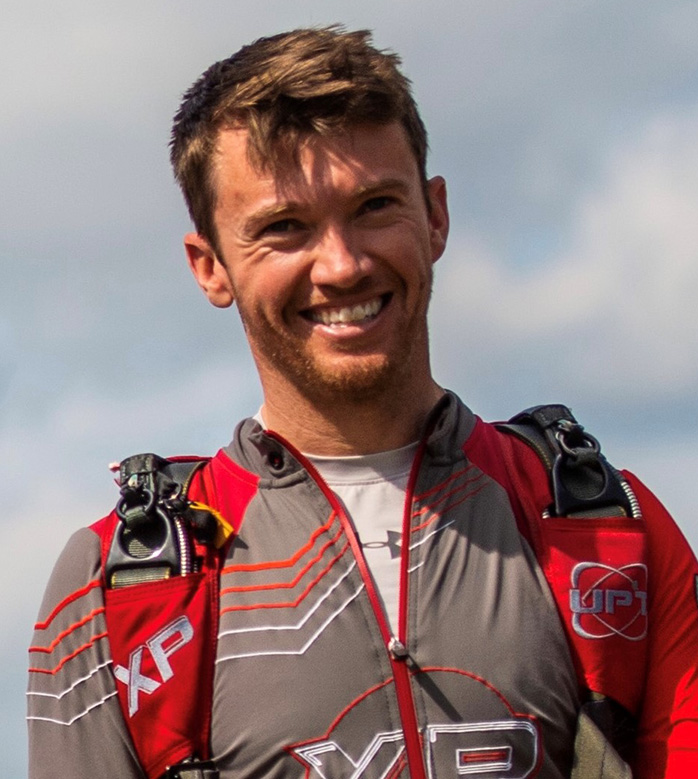Above: Photo by Chris Bess.
Each year, the sport of skydiving continues to push the boundaries of body flight to new heights. Historically speaking, skydiving competitions have been most well-known for formation skydives—teammates scoring by taking grips and turning points with one another. However, as the sport has evolved over recent years, the artistic events category (consisting of both freestyle skydiving and freeflying) has started to make its way into the forefront of skydiving competitions across the globe.
Both of these two subcategories of artistic events give competitors the opportunity to showcase their creative flying styles, whether it be flying dynamically, performing acrobatic maneuvers with unique body positions or a combination of both. Artistic events open the door for performers and videographers to be as innovative as they desire, with their free routines making the competitions more individualized and exciting, since no two competitors’ free routines are the same.
In past years, the degree of difficulty for artistic competition required such a high level of body-flight skill that it unfortunately precluded many newer jumpers looking to get into the discipline. This year, things are different. At its 2023 winter meeting, the USPA Board of Directors approved an intermediate class test event for both freestyle skydiving and freeflying at the USPA National Championships at Skydive Paraclete XP in Raeford, North Carolina, this September. This new class will be more welcoming to jumpers who hold a B license or higher and hold basic freefall skills to compete on a national level in artistic events.
For those unfamiliar with these two disciplines, freestyle skydiving consists of one performer and one camera flyer, while freeflying has two performers and a camera flyer. This means that creating a team can be as easy as finding just one to two other jumpers also looking to try out this flying style. Artistic categories are scored on the overall difficulty as well as the execution, presentation and creativity of the routine. While the performer, or performers, are often seen as the focal point of the team, the videographer’s role is just as imperative, since scoring is judged from the final video product.
Seven rounds—consisting of two compulsory rounds, where competitors all complete the same sequences, and five free routine rounds, where the freefall sequence is created and executed by each individual team—make up the competition in both artistic disciplines. Both compulsory rounds are made up of four predetermined sequences—such as the angle sequence or looping sequence—with separate criteria for each. Videos and specific information for each of these sequences for the intermediate class at the 2023 USPA National Championships can be found at xpascend.com/ae-intermediate.

Photo by David Cherry.
In a free routine, teams have total freedom to choose which maneuvers, style and format they want to fly. This is where a team can really unveil their creativity, showcasing their strengths and preferred style of flying. The free routine is a combination of dynamic moves and acrobatic maneuvers choreographed between performer(s) and camera flyer. As mentioned above, each team flies their free routine five times. Most teams choose to repeat the same skydive for all five rounds, as it allows the team the opportunity to perfect their routine by the start of competition, but they can be different if so desired. The possibilities are endless.
Starting anything new can feel overwhelming, and it’s common not to know where to start—especially in skydiving. It’s helpful to begin by flying the compulsory rounds, which can be integral to a team’s success, giving structure to both performer(s) and camera flyer. It’s also a way to build the important skills that carry over into the creation of a free routine.
This year’s intermediate class of the artistic events is an amazing opportunity for all flyers. It’s a perfect opportunity to start a team, challenge yourself and your teammate (or teammates), expand your flying capabilities and hopefully take home some medals at the end of this year’s USPA National Championships.
The complete rules for the Artistic Freestyle and Freefly Intermediate Test Events are available at the bottom of the page at uspa.org/scm.
 About the Author
About the Author
Jason Brigmon, C-42880, is a defending national and world champion in freestyle skydiving as a member of XP Ascend, based at Skydive Paraclete XP in Raeford, North Carolina. He is looking forward to welcoming new artistic flyers to his home drop zone for the 2023 USPA National Championships this September.